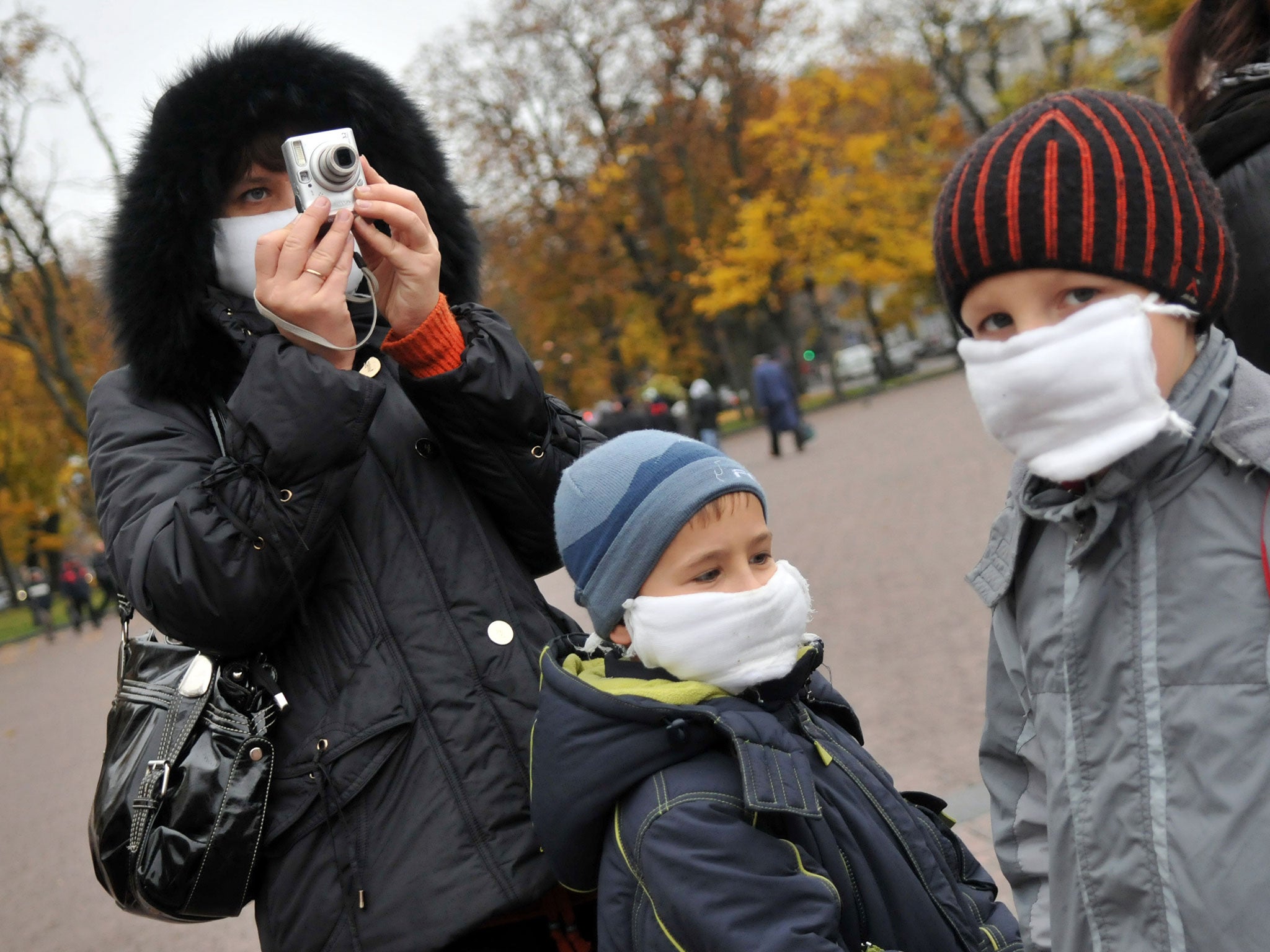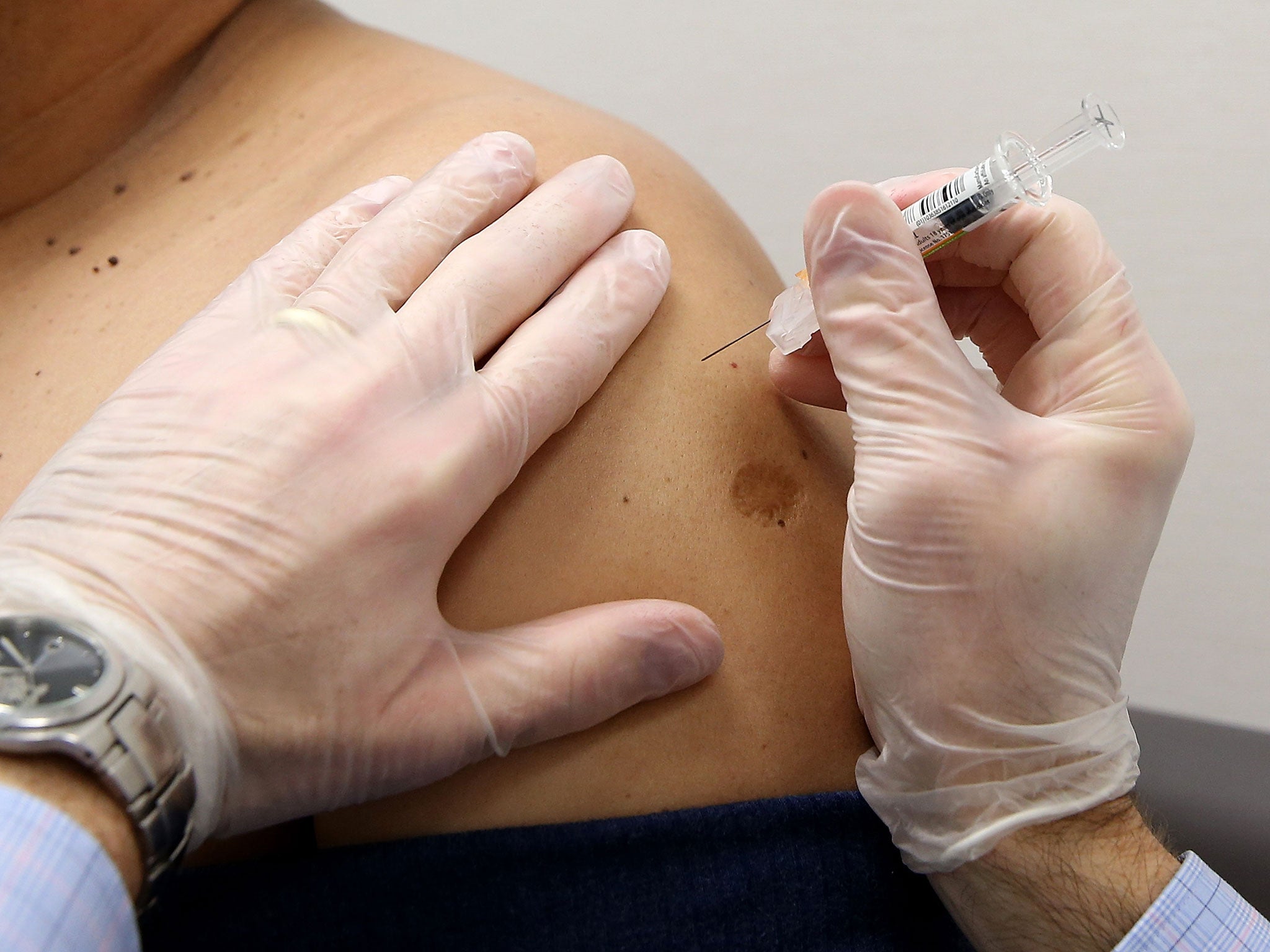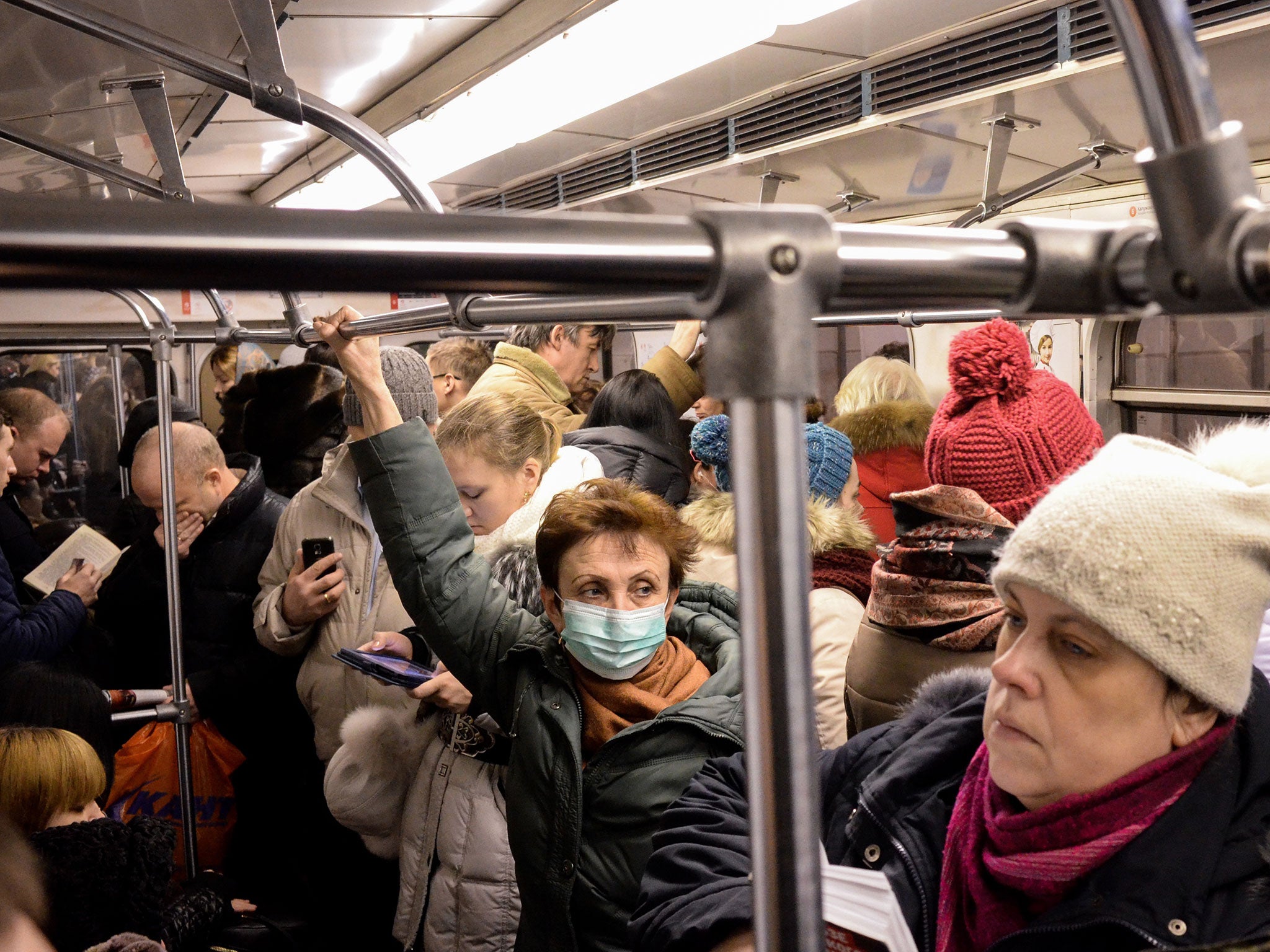Swine flu outbreak kills more than 300 people in Ukraine as virus reaches epidemic levels in some regions
Authorities in Kiev have brought in infection control procedures to slow its spread

Your support helps us to tell the story
From reproductive rights to climate change to Big Tech, The Independent is on the ground when the story is developing. Whether it's investigating the financials of Elon Musk's pro-Trump PAC or producing our latest documentary, 'The A Word', which shines a light on the American women fighting for reproductive rights, we know how important it is to parse out the facts from the messaging.
At such a critical moment in US history, we need reporters on the ground. Your donation allows us to keep sending journalists to speak to both sides of the story.
The Independent is trusted by Americans across the entire political spectrum. And unlike many other quality news outlets, we choose not to lock Americans out of our reporting and analysis with paywalls. We believe quality journalism should be available to everyone, paid for by those who can afford it.
Your support makes all the difference.More than 300 people have been killed in little over four months by a swine flu outbreak ripping through Ukraine.
The country’s health minister, Alexander Kvitashvili, urged the public not to panic last month but 3.8 million cases of influenza and Sars (severe acute respiratory syndrome) have now been reported and transmission shows no sign of slowing.
Among the 313 confirmed deaths so far were five children and two pregnant women, according to the latest figures from the Ministry of Health in Kiev.
The toll is already higher than that seen during the global swine flu pandemic in 2009-10 and incidence is almost 50 per cent higher than the same period last year.
It comes as fighting continues between government forces and separatist rebels in eastern Ukraine, where the Donetsk region is among those hardest hit by the virus
Kiev introduced infection controls in schools, medical centres and public buildings a month ago, with mayor Vitali Klitschko calling the measures “preventative”.
Almost 17 per cent of the city’s population has been affected, according to Government statistics, compared to Kharviv where the figure stands at just 4 per cent.
Although the spread of swine flu has reached epidemic levels in some regions, the health minister insisted Ukraine’s situation was no worse than neighbouring countries last month.
"There is no reason for panic," Mr Kvitashvili said.

The highest number of deaths have been recorded in southern Odessa region, followed by Kiev, Cherkasy, Donetsk and Lviv.
Most of the patients hospitalised with swine flu and Sars since the beginning of the defined epidemic season in September have been children, who are particularly vulnerable to the virus.
“Only a third of the dead sought medical advice promptly,” a health ministry spokesperson said.
“Analysis of the deaths showed that all the dead had no vaccinations against influenza.”
More than 125,000 people have been given flu vaccinations since the outbreak started but experts have said a “culture of vaccination” is lacking among both doctors and the public.

"From the point of view of doctors, the situation is serious," said Dr Fyodor Lapiy, Kiev's chief immunologist,” told the BBC.
“The number of cases of sickness are growing, and very many young people have fallen ill."
Swine flu, or H1N1 causes seasonal outbreaks of flu in humans on a regular basis and can be spread from person to person by coughing and sneezing.
Symptoms are similar to those produced by normal seasonal flu, including a fever, cough, sore throat, aches and chills, although many sufferers show now symptoms and recover quickly.
Serious illness and death is most commonly seen in the young, very elderly, pregnant women or people with a pre-existing health condition that weakens their immune systems.
The strain was not identified until 2009, when it spread rapidly from country to country because there was little immunity to the new type of flu.
Ukraine’s outbreak has failed to garner international attention as the Ukrainian government fights a looming coalition break-up and struggles against rebels controlling territory in the east.
A fragile ceasefire was holding on Wednesday, according to monitors with the Organisation for Security and Cooperation in Europe.
Two years after the "Maidan" protests that overthrew President Viktor Yanukovych, Ukraine's economy is still shrinking, the hryvnia currency is hovering around 11-month lows and the conflict, which has claimed more than 9,000 lives so far, shows no sign of ending.
Kiev's failure to tackle corruption and implement reforms has prompted the International Monetary Fund to withhold the next tranche of aid, worth $1.7 billion (1.2 billion), which is part of the $40 billion (£28 billion) Western aid programme.
Additional reporting by AP
Join our commenting forum
Join thought-provoking conversations, follow other Independent readers and see their replies
Comments